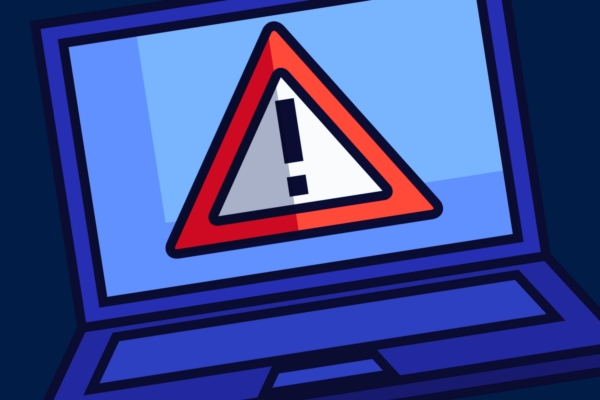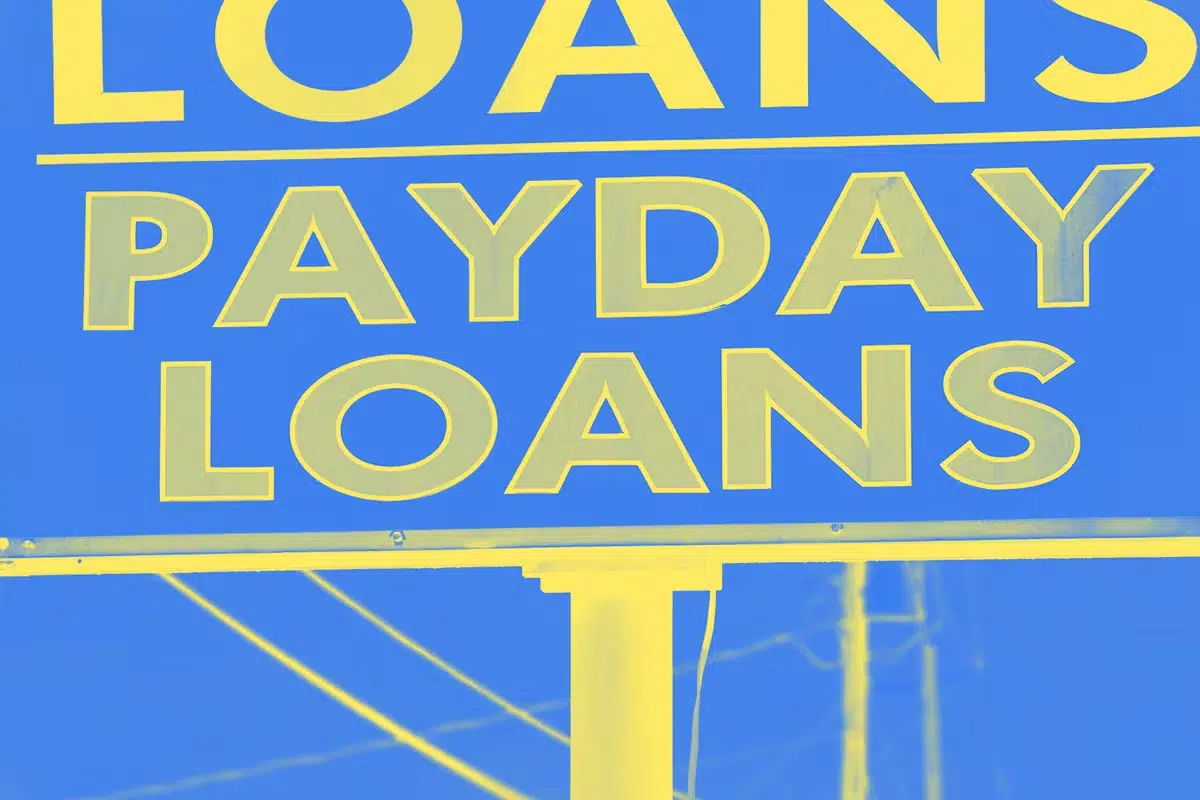
2023 Scams: Payday Loan Scams

Payday loan scams are becoming increasingly common, leaving unsuspecting individuals vulnerable to fraud and identity theft. With more people turning to quick-fix loans to cover unexpected costs or emergency expenses, it can be difficult to know who to trust and how to protect yourself from scammers.
In this blog, we’ll break down what a payday loan is, what a scam may look like, and the ways in which you can avoid predatory lenders to keep your financial information secure.
What is a payday loan?
A payday loan is a type of short-term, high-interest loan typically used by people in need of quick cash before their next paycheck arrives. It’s a small, unsecured loan with repayment due on a date in the near future, typically on the borrower’s next payday. Payday loans often come with stringent payment terms and high interest rates, which can make them difficult to pay off. You may have also heard it go by other names— a check-advance loan, a cash-advance loan, a post-dated check loan, or a deferred deposit loan.
Payday lenders were traditionally store fronts (think names like ACE Cash Express or Speedy Cash) but more and more online lenders are popping up nowadays, giving rise to loan scams.
Are payday loans scams?
No, not all payday loans are scams. Businesses that provide payday loans must be licensed and registered in the state in which they operate and abide by certain laws and regulations.
While not every payday lender is a scammer, that doesn’t necessarily mean that their practices are ethical, either. Even though these lenders are regulated, in states like Texas, payday loan businesses face fewer restrictions than in other states. Many states have imposed rate caps that limit the amount of interest that payday lenders can charge. Texas has no such restrictions, and many lenders have cashed in, charging exorbitant interest that creates long-term debt cycles.
In 2021, Texas led the nation in payday loan interest rates, coming in at an average of 664%— more than 40 times the average credit card rate at that time. That being said, legitimate payday lenders charging these rates are within their rights to do so. If you have ever or plan to take out a payday loan in the future, it’s important to know your consumer rights.
What does a payday loan scam look like?
Three popular payday loan scams have been on the rise in the last few years:
- A scammer obtains your personal information, such as bank account and Social Security numbers, under the pretense that they need it to deposit your loan funds into your account.
- Scammers send money on a platform like Venmo, CashApp, or Zelle or via check and then claim that it was sent by mistake and that you need to send the money back. Victims repay the money and a few days later learn that the original payment to them was no good, leaving the victim out that amount.
- A phony lender claims that a fee must be paid before the loan is released to them, then the lender disappears without funding the loan.
Though these scams may take different forms, there are a few things you can be on the lookout for to protect yourself.
Signs of Payday Loan Scams
Payday lenders and other loan providers that offer quick, easy money should be approached with caution. Here are a few warning signs to look out for:
1. They request personal information or payment upfront.
If a lender is pressuring you to quickly provide personal information like your Social Security, bank account numbers, or online banking login, do not give it to them.
Never give personal information or money to any lender unless you are certain they are legitimate, even if they claim you will miss out on a special deal or interest rate. Creating a sense of urgency is a classic tactic to get victims to act without thinking.
2. They insist on using wire transfers or prepaid cards instead of a traditional method for loan repayment.
Insistence on the use of non-traceable payment methods (like Venmo, PayPal, Zelle, and others) is a classic sign of a scam. Legitimate companies will welcome loan repayment through legitimate means like a check, debit card, or ACH transfer.
Another red flag is if a bank asks you to deposit a check and return the money in order to verify your identity.
3. They refuse to provide information about the company.
If you try to investigate the company by asking for a physical address, business license numbers, etc. and you’re met with resistance, do not proceed with the company.
Legitimate businesses will always have an address or other types of verifiable information available. When a person or company seems dodgy and hesitant to provide proof of their legitimacy, it’s probably because they are not a real business.
4. The lender reaches out to you unsolicited.
If you get a call, text, or email out of the blue from a payday lender, proceed with extreme caution. Unsolicited offers are oftentimes a sign of a scam, even if the person is claiming to be from a legitimate business.
Remember— email addresses and phone numbers can be spoofed to look like legitimate businesses.
How to Protect Yourself Against a Payday Loan Scam
If you must rely on a payday loan lender for a cash advance, keep the following tips in mind to protect yourself against scammers.
1. Use reputable lenders and do your research.
If possible, opt for store-front lenders with reputable histories. Should you decide to use an online lender, be sure to do your research using trustworthy websites like the Better Business Bureau or your state’s attorney general. Even a quick Google search can return valuable info (like a phone number and physical address) that can help you assess a business’s legitimacy.
2. Avoid copy-cat websites by reading things carefully.
Some scammers may create convincing look-alike websites or email addresses. To avoid falling victim to a copy-cat company:
- Always visit websites by typing in the web address directly— never click on links that have been sent to you.
- Make sure the name matches up exactly. For example, if you’ve borrowed from ACE Cash Express in the past but get an email from ACE Express Cash, you are likely dealing with a scammer. The logos and email design may even look similar.
- Look at email addresses. If the email is a Gmail or Yahoo account, it’s probably a scam.
A little due diligence can go a long way. Taking the extra time to make sure a website is legitimate is so worth it.
3. When in doubt, move on.
There are hundreds of reputable companies out there, so if you have a bad feeling about a company, move along to one that you can be 100% sure about. And if they’re offering you a deal that no one else can match—that’s even more reason to be skeptical that they’re legitimate.
The Bottom Line
Payday loan scams are just another scam in a long litany of sophisticated tactics frauds are using these days. The best way to keep your information secure is to know what to look out for. For more ways on how to keep your identity and money safe, read more of our articles on fraud and identity protection.
Become an Amplify Member
Every Amplify account holder enjoys fee-free banking. That means no overdraft, maintenance, or other banking fees cutting into your pocket.




